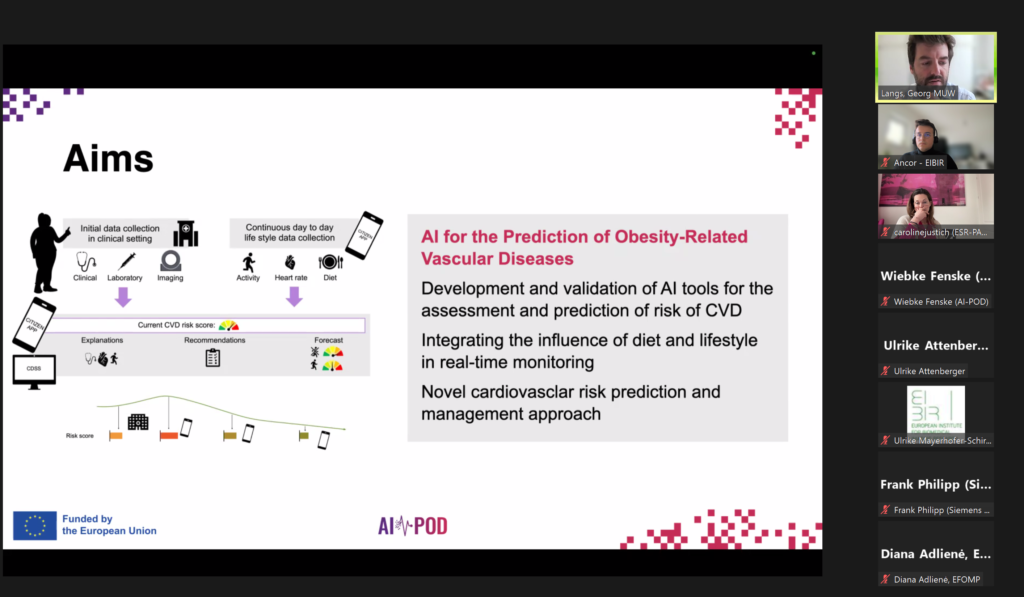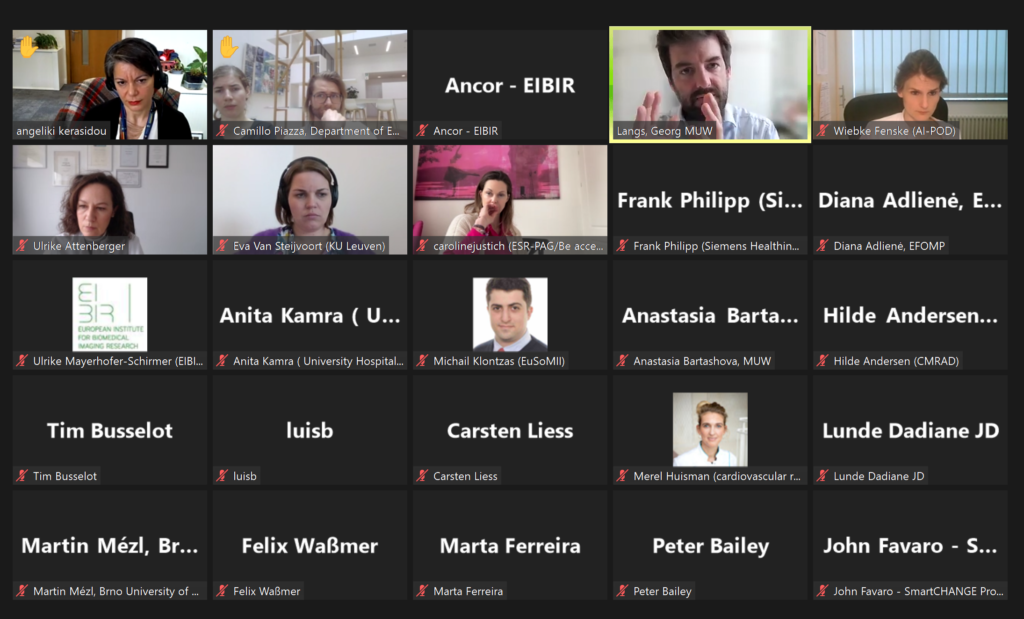On April 24th, the 1st Stakeholder and End-user webinar was held to introduce the AI-POD project, gather feedback, and facilitate collaboration among clinicians, researchers, patients/citizens, policy- and decision-makers, and obesity-related professional societies.
Prof. Ulrike Attenberger, the Project Coordinator, introduced the key members of the project, including Prof. Wiebke Fenske and Prof. Georg Langs, who present the clinical and technical aspects, respectively.
Prof. Wiebke Fenske presented the medical motivation behind the project, highlighting the need for personalized risk assessment and management in light of the global rise in obesity. She also described the proof-of-concept study aimed at evaluating the AI-POD risk tools against current standards and assessing the feasibility of integrating lifestyle data from the Citizen app.
Prof. Georg Langs presented the technical aspects of the project. He detailed the development of the AI-POD risk score, clinical decision support system, and Citizen app, emphasizing the fusion of clinical and lifestyle data for precise risk assessments. He highlighted the importance of a robust data platform integrating various data modalities to refine risk scores and ensure predictive accuracy. Prof. Langs also underscored the significance of validation and transparency in the AI-based risk score, addressing ethical concerns and emphasizing rigorous quality checks on retrospective clinical data and real-time data from the Citizen app. These efforts aim to deliver a user-friendly app providing prediction scores to patients and aiding informed decision-making in healthcare delivery.


A clinical researcher from Inselspital (University Hospital Bern), inquired about the methodology for tracking dietary habits through the Citizen app. Wiebke Fenske elaborated on the approach, explaining that participants would input dietary information through a questionnaire within the app. She also mentioned plans for reminders and on-site visits to ensure regular and accurate data collection.
A clinician from Radboud University Medical Center, further suggested considering variations in diet types, such as vegan/vegetarian versus omnivorous diets, to potentially analyse their effects on cardiovascular risk. This prompted discussions on the feasibility of incorporating diet types into the data collection process and its potential impact on the study’s outcomes.
In summary, the 1st Stakeholder and End-user webinar was a success and marked the beginning of a series of webinars that will provide a space to engage with experts and stakeholders to pave the way for collaborative solutions in obesity management.